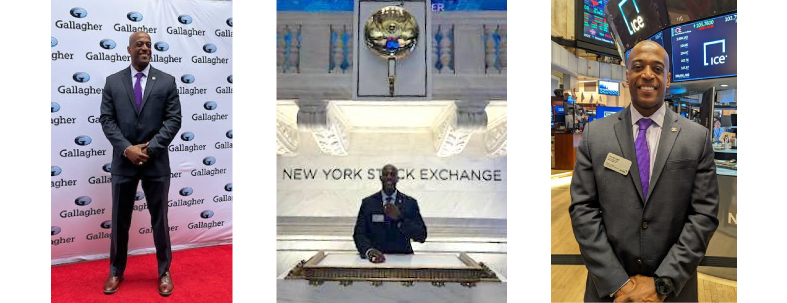About Risk Cooperative
Supplier Diversity
Varied perspectives are critical components of effective risk management. Risk Cooperative’s supplier diversity capabilities adds value to our client and partner relationships.
The National Minority Supplier Development Council (NMSDC) reports that Fortune 500 companies are spending 98% of their total spend with non-MBE businesses, despite pledging targets of 10% or more. As minority-owned business, Risk Cooperative is uniquely qualified to help businesses implement their supplier diversity goals.
The public good, corporate values, and good business are naturally integrated risk management pillars. Few other firms can provide the broad scope of services and complex risk placement capabilities that Risk Cooperative offers. We embrace opportunities to align our talents and expertise with initiatives that increase supplier diversity, serve marginalized communities, and generally support greater diversity, equity access and inclusion.
Resource Library
Risk Cooperative Chief Revenue Officer, Les Williams, is honored to participate in a Black History Month event, hosted by Gallagher to Ring the New York Stock Exchange Closing Bell. Just seven months ago, Risk Cooperative obtained our CRMSDC MBE Certification and began our journey to help companies meet supplier diversity goals with Tier 1 risk […]
Risk Cooperative Chief Revenue Officer, Les Williams, is honored to participate in a Black History Month event, hosted by Gallagher to Ring the New York Stock Exchange Closing Bell.
Just seven months ago, Risk Cooperative obtained our CRMSDC MBE Certification and began our journey to help companies meet supplier diversity goals with Tier 1 risk and insurance solutions. At that time, Chief Revenue Officer and Co-Founder, Les Williams, noted, “Our team specializes in helping businesses build operational resiliency, and in our experience, diverse perspectives are critical to effective risk management – the public good, inclusivity, and business success are not in conflict.”
While the insurance industry, and much of financial services, lags behind in diversity and inclusion, there are some organizations doing good work to make improvements. The Gallagher Connect Partner program enables independent MBE brokerages, like Risk Cooperative, to amplify our supplier diversity capabilities while providing clients with solutions to increase their diverse spend. The New York Stock Exchange launched the Board Advisory Council in 2019 to address the critical need for diverse, inclusive leadership on public and private company boards, believing categorically that “if the leading companies of today plan to be the leading companies of tomorrow, they will need diversity at the very top,” writes Elizabeth King, President, ICE ESG & Chief Regulatory Officer at Intercontinental Exchange (ICE). As Risk Cooperative Chairman, Dante Disparte wrote in Risk Management Magazine under the title Pale, Stale and Male: Does Board Diversity Matter? in 2018, “The role of the board must evolve beyond check-the-box compliance and move to embrace a holistic and integrated strategic oversight of ESG, enterprise risk management, leadership and culture. An essential part of achieving this objective is to have a properly diversified board.”
On February 23, these threads came together as our friends at AJ Gallagher rang the New York Stock Exchange Closing Bell, with our own Les Williams in attendance to represent Risk Cooperative as a member of the Gallagher ConnectPartner network. To honor the occasion, Flutterwave Founder & CEO, Olugbenga ‘GB’ Agboola rang the NYSE Closing Bell at the BlackHistoryMonth event. Since 2016, the fastgrowing fintech firm has become one of Africa’s highest-valued unicorns, a payment infrastructure connecting African businesses to the global economy. As Flutterwave harnesses an opportunity for exponential growth in emerging markets, they’re also committed to creating greater financial inclusion – one of Risk Cooperative’s core interests.

WATCH CLOSING BELL:
Olugbenga Agboola Rings the Closing Bell
SUPPLIER DIVERSITY RESOURCE LIBRARY:
PRESS RELEASE: MINORITY CERTIFICATION
CAPABILITIES DOCUMENT
SUPPLIER DIVERSITY PROGRAM
Have questions? Send us a message.
Historically, models used by insurance companies in the U.S. have adversely affected the ability of poor and non-white individuals to obtain adequate coverage. Using zip codes, home ownership status, credit scores, and other demographic information as a proxy for assessing risk, traditional underwriting models have created unequal access to insurance as a financial safeguard, and consequently reduced some families’ ability to build generational wealth.
Longstanding bias in traditional insurance pricing models
There are laws against discrimination in underwriting, including some, like the Fair Housing Act, that even attempt to address disparate impact on protected classes as separate from the intent of certain practices. However, the issue remains, leading The National Association of Insurance Commissioners (NAIC) to form a special committee in 2020 to determine ‘what barriers exist in the industry that potentially disadvantage people of color and historically underrepresented groups.’
The auto insurance industry has been particularly guilty of archaic underwriting standards. From marital status to educational attainment, rating systems for auto carriers penalized prospective customers for aspects of their lives they cannot control as well as life choices that should have no bearing on their ability to qualify for affordable coverage.
Creating fair insurance for all
Loop insurance, a startup founded by John Henry and Carey Nadeau, aims to address these discriminatory pricing practices in the auto insurance space. Founded on the belief that everyone deserves affordable auto insurance, they use proprietary AI to focus on factors that have a direct correlation to how consumers drive.
According to Loop, their technology does not punish customers for their occupation, credit, education, or homeownership status. In fact, they provide consumers with a breakdown for how much an insurance rate will vary based on each deciding factor. Loop uses just two key metrics to give its customers a price: road conditions and driver behavior. By collecting data about how and where someone drives, Loop can set insurance premiums that are less dependent on demographic details out of their control.
Equitable Insurance does not have to be a fantasy
The trend of underwriting without using traditional factors is expected to increase. In fact, other industries outside of insurance have adopted this practice. Meritize, a lender which looks beyond FICO scores, is an attractive alternative for student loan borrowers. This lender considers an applicant’s academic or military achievements to enhance credit worthiness and improve loan options. ResidentScore, Transunion’s unique scoring model – used by landlords to screen renters – identifies the characteristics of renters least likely to default on rent payments by using actual rental outcome data to predict the likelihood of evictions.
Though Loop is currently tackling affordable and equitable access in the auto insurance market, their mission could be applied to other insurance markets. While it can be argued that bias will continue to exist in AI – since code is programmed by people, who bring their biases into a digital framework – committing resources and taking actionable steps to address inequity for all will provide insurers with increased trust from traditionally excluded consumers, resulting in affordable options by which consumers can protect themselves against the daily risks of living and increased revenue for insurers. This is truly a win-win situation for all stakeholders.
Washington, D.C. November 13, 2020 – Risk Cooperative CEO and Co-Founder, Andres Franzetti, has been named a 2020 Business of Pride Honoree by the Washington Business Journal on October 2, 2020. The award recognizes Mr. Franzetti’s tireless advocacy of diversity in the workplace and in the broader community. Carrying this philosophy forward, Andres and his co-founders have established Risk Cooperative as a highly diverse, minority and LGBTQ led firm in an industry that is often perceived as more conservative and predominantly male-dominated.
“I am honored to join such a distinguished group of business leaders. Building a diverse financial services firm, comprised of all races, genders and nationalities was an important goal in founding Risk Cooperative. Diversity amongst our highly skilled team only helps to foster innovation and provide unique perspectives that are vital to navigating an ever evolving and complex risk landscape for our clients,” says Andres Franzetti.
This focus on inclusion doesn’t stop at the front door. Risk Cooperative engages with the insurance world on issues of D&I, climate change and financial inclusion. Beyond continuing to build a diverse and inclusive firm, Risk Cooperative continues to focus on creating accessibility to insurance and risk transfer solutions for underserved communities, helping them to build financial and operational resiliency.
The Business of Pride Awards 2020 celebrations were conducted virtually this year for COVID safety precautions. More information about the other honorees can be found at the Washington Business Journal.
About Risk Cooperative
Risk Cooperative is a specialized strategy, risk and insurance advisory firm licensed to originate, place and service innovative risk-transfer and insurance solutions in all 50 states, D.C. and Puerto Rico. Risk Cooperative helps organizations address risk, readiness and resilience through a comprehensive service and solution offering in partnership with leading insurance companies and value-adding partners.
For more information visit: www.riskcooperative.com
Media Inquiries:
media@riskcooperative.com | 202-688-3560
In the aftermath of the tragic death of George Floyd, businesses across the country have scrutinized their Diversity and Inclusion (D&I) initiatives more closely than ever. JP Morgan has recently committed $30 billion to help close the racial wealth gap facing Black and Latino Americans.
While the investment addresses important issues, like the origination of personal home loans and providing loans to thousands of small Black and Latino businesses, other banks have pursued similar outreach efforts. Earlier this year, Citigroup and Bank of America announced over $1 billion each to help close the racial wealth gap.
While these banks have made external efforts to improve D&I, these banks, and other organizations, have also taken measures to address D&I internally.
Starbucks made the unprecedented move to tie executive pay to 2025 diversity targets, with the goal of having 30% of U.S. corporate employees and 40% of U.S. retail and manufacturing employees be people of color.
Setting a date of 2025 is important for two reasons — it sets a definitive timeframe for the company to manage towards, and a five-year window enables Starbucks to be thoughtful about a strategy that can be adjusted as needed to meet its goals.
Tying executive pay to diversity targets is one way to make a D&I program impactful, and Starbucks should also consider tracking the retention rates of these new hires. Do these targeted employees have a higher attrition rate than new hires from other racial backgrounds? What percentage of these new hires remain at Starbucks after one year?
Retention is another important metric every D&I program should measure.
Starbucks has always been on the cutting edge of promoting conversations around race, from the edgy Race Together Campaign in 2015 to its response to the profiling incident at one of their Philadelphia stores in 2018.
However, despite their good intentions, trouble may be brewing for Starbucks and other businesses contracted to work with the federal government given the new executive order issued by the White House addressing race and sex stereotyping.
Government Contractors Beware
On September 22, the White House’s Executive Order on Combating Race and Sex Stereotyping instructed all federal agencies and government contractors to suspend diversity training programs.
While the goal of the order is to discourage D&I training programs from casting the United States as a fundamentally racist country, it misses the point of what D&I programs are designed to accomplish.
In the wake of George Floyd, firms want to create a safe environment where employees can understand the difficulties faced by their fellow employees of color, and an important part of D&I training involves having open and honest dialogue.
D&I programs attract employees of color to companies, and studies show that diversity boosts innovation and financial results.
While many companies, such as Starbucks, intend to ignore this executive order, smaller firms that do not have Starbucks’ fortress balance sheet may be unable to withstand the shock of losing a government contract due to lack of compliance.
If a government contractor suspends its D&I program to remain in compliance with its federal contract, does this create liability should an employee file suit claiming racial discrimination due to the changing office environment? By suspending D&I programs, do government contractors also run the risk of declining employee morale and high attrition?
While government contractors continue to debate the suspension of their existing D&I training programs, there is a solution they can implement to protect themselves from liability in the form of Employment Practices Liability Insurance (EPLI) insurance.
Try EPLI
EPLI covers, up to the policy limits, damages for which an employer is legally liable such as violating an employee’s civil or other legal rights. This can include claims such as racism, sexism and ageism.
In addition to paying a judgment for which the insured is liable, EPLI also provides legal defense costs, which can be substantial even when there has been no wrongdoing.
As employees and employers struggle to make sense of the post-George Floyd environment, having a forum to openly discuss race is more important than ever.
Government contractors are encouraged to revisit the limits on their EPLI policies with their risk managers, and now is the perfect time to procure this imperative coverage if none exists.
Just like COVID-19 has led to an increase of D&O claims, the suspension of D&I programs may result in an increase of EPLI claims among employees who face real or perceived racial discrimination in an environment without D&I training.
While the future of D&I training remains nebulous for government contractors, having a robust EPLI insurance policy provides the financial backstop needed to place a fixed price on an uncertain future.




